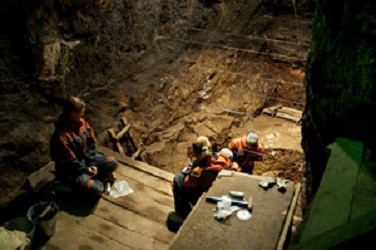Scientists Reconstruct Genome of Extinct Human
Scientists from the Max Planck Institute for Evolutionary Anthropology in Germany have reconstructed the entire genome of a Denisovans, - an extinct type of humanoid.
A small fragment of a human finger was discovered at the Denisova Cave in southern Siberia, in 2010. The bone was dated to a period between 30,000 and 50,000 years ago.
The researchers used a technique that allowed them collect DNA samples from the recovered bone, which then helped in the reconstruction of the genome.
According to the scientists, this complete genome could help researchers understand more about the extinct species of humanoids and their lives. Additionally, it also provides insights into the evolution of man.
The genome is also expected to reveal new aspects of the history of the Denisovans and Neanderthals.
"We hope that biologists will be able to use this genome to discover genetic changes that were important for the development of modern human culture and technology, and enabled modern humans to leave Africa and rapidly spread around the world, starting around 100,000 years ago," said Svante Pääbo from the Max Planck Institute.
The Institue released a draft version of the genome in 2010, by Paabo, which indicated the Denisovans may have interbred with modern humans. A report by New Scientist spoke on the report, adding that since each position in the genome had only been read twice, the fine detail was unreliable. The New Scientist report also added that the new genome covered each position 30 times over.
Pääbo plans to use the detail to estimate how much genetic variation was present among the Denisovans, revealing whether they suffered population crashes.



© Copyright IBTimes 2025. All rights reserved.





















